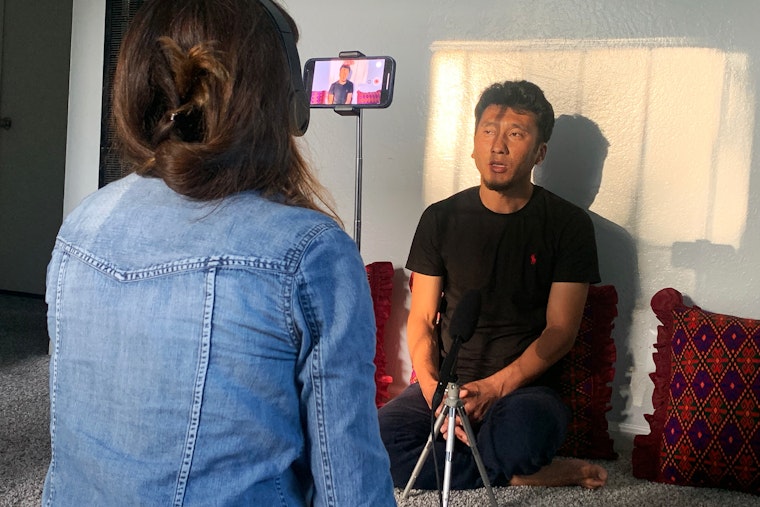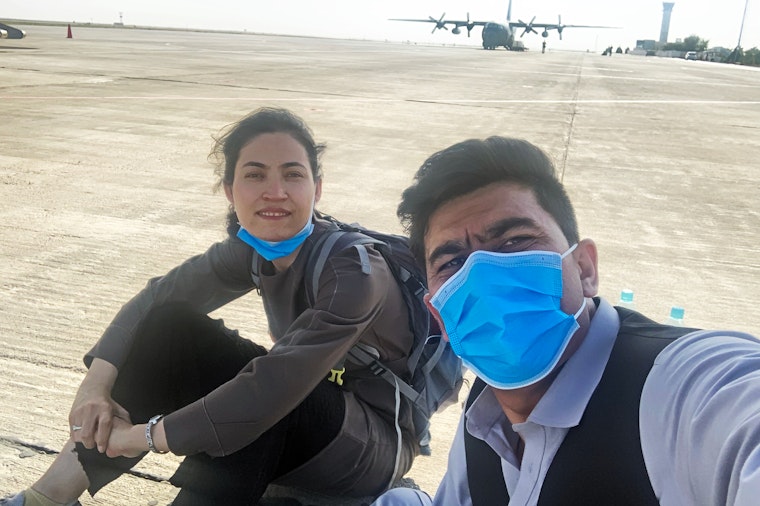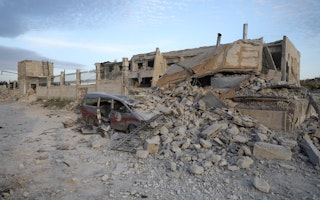I Left My Heart in Afghanistan
By Gaisu Yari

What does August 15, 2021, mean to me? What happened to us? Where did we go and how could we cope with the loss, misery, hopelessness, and anger over being destroyed, betrayed, and left alone in Afghanistan and in exile?
As the U.S. began its hasty withdrawal from Afghanistan, I had just four hours to pack up every personal item in my apartment. No time to waste. I had to decide what to take and what to leave—knowing that what I would leave I might never see again. One rule kept circling through my mind: Pack the life you have created here in Afghanistan into one suitcase and never forget the dreams of the people of this land.
I anxiously packed up my things and left for the Kabul airport on August 19, 2021. It was hardly sufficient time to part with my life, my work, and everything I was leaving behind. Perpetual tears ran down my face as we made the perilous trip to the Kabul airport not knowing what this unwanted journey would bring. I did not have enough time to say goodbye to loved ones. And as much I tried to conjure ways to plan, resist, and fight to stay in Afghanistan with each passing moment, it was gut-wrenchingly evident that we had lost our chance.
Now, a year later, we still carry the pain of those moments, and the aching feeling of being abandoned.
I am sitting by the window now in my apartment in Maryland reviewing every single story I collected from Afghans who fled to Poland, France, Canada, and the U.S. I look out at the view of the Metro station parking lot, and the Army recruiting station next door, and realize that I am living some of my darkest days a year after leaving.

The story is the same for everyone who had to pack up their lives and leave our country on a couple hours’ notice. I remember the pain of saying goodbye to my mother. She met me on the roof of an old house in Dashti Barchi where I had been hiding from the Taliban for three days. She cried and begged me to head to the airport immediately before the Taliban arrived and began searching for me in the neighborhood.
I arrived at the airport filled with fear and uncertainty. I didn’t know how, when, or whether my family and I would be evacuated. Would it be the U.S. or the Polish government that would facilitate our exit? Who would they help and when? How long would we have to wait in the crowd of thousands of others frantically grasping at any news about our potential escape from the brutal violence of the Taliban?
We waited outside the gate for 24 hours without money, food, or water. As hard as that was, watching the Taliban senselessly punishing Afghans and preventing them from fleeing was worse. Before the Taliban’s takeover, the airport was a place where Afghans and international citizens who were making meaningful contributions to the country could travel freely. Once the Taliban seized control, it quickly transformed into a chaotic scene, marred by the sight of women and children being lashed and the sound of gunfire. I curled up in a ball in a corner so that the Taliban would not see me.
I was one of the fortunate ones. I eventually evacuated to Poland, landing with my family in a refugee camp with scarce food or resources. That is when I began collecting stories from others living in the camp. As we exchanged stories, I observed how these exchanges were fostering a sense of connection, unification, and empathy. It became a motivation for me to talk to other members of the community and ask about their personal experiences, their journeys, and what it meant to leave everything behind to save their children, their families, and themselves.
With the support of the Open Society Foundations, Memria.org, and the Bertha Foundation, I was able to travel to different countries and states within the U.S. for a more global survey of Afghans who are beginning their new lives in exile. I have collected hundreds of shocking and poignant stories to date—some with inspiring and hopeful messages for the future, others despairing of a future away from their homeland.
Read the stories from the Afghan Voices project here.
“Call me back to Afghanistan, call me to return,” an artist told me in France. Back home, he had spent years breaking taboos and overcoming obstacles to perform in the theater. “Nothing was important enough for me to bring,” another artist told me. “I left my eleven years of experience behind. Could I bring that with me? No.” She needed to continue her work as a way to help cope with the hopelessness and trauma she was experiencing. “I wish I could bring my country with me,” said a taxi driver in the U.S. who had spent his whole life exploring and experiencing the vibrant city of Kabul.
None of the people I spoke with ever imagined that Afghanistan could fall back into the hands of the Taliban—and that no one could save it. Even as they spoke of what they carried with them, they could not shake what they left behind. “I brought what I thought was important to me,” a prosecutor told me. “I brought my knowledge, my experience, and my dedication to work. Does that matter here in the United States? No.”
Afghanistan may fade from the headlines, but these stories will keep the country’s people and their dreams alive. These living histories serve as a vital tool for future generations to learn from this tragic, historic moment—and to learn about an Afghanistan that once fought for a brighter future. One day, the next generation will understand the painful truth of Afghans living in exile after the Taliban took control of the country—Afghans who hope for brighter days ahead.
Afghan Voices is a grantee of the Open Society Foundations.
Gaisu Yari is project director of Afghan Voices.

